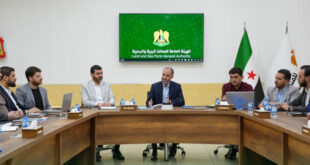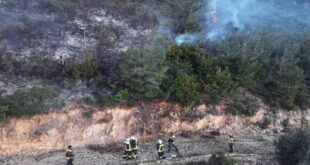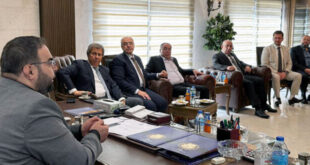Homs, SANA-Three years into a crisis that has torn families asunder, many Syrian kids are deprived of their simplest rights to life, education, playing and family, with the loss of the latter emerging as one of the saddest social and emotional byproducts of war.
Against this backdrop and with some makeshift residential centers inside Syria and abroad registering the arrival of kids unaccompanied by parents, governmental bodies, humanitarian organizations and NGOs found it imperative to launch new projects to reunite these kids with their families or find them substitute families for support.
With this goal in mind, Ministry of Social Affairs, in cooperation with the Social Affairs Directorate in Homs and the United Nations Children’s Fund (UNICEF) have launched the “family tracking and reunion” project for uniting children with their families.
The project attempts to establish a database about children separated from their families and bereft of family care so as to have them integrated into substitute families and provide them with the necessary support.
“After the crisis flared up in Syria and with millions getting directly affected, human rights abuses surfaced and large numbers of kids were susceptible to violence, exploitation and harm,” says Mays Ajeeb, coordinator of the Family Tracking and Reunion Project at the Ministry of Social Affairs.
She indicates that large numbers of children separated from their relatives were recorded due to armed acts in several areas across Syria, some of whom she says are living in neighboring countries while others are dwelling at alternative care institutions.
Acknowledging that Syria lacks a family tracking system since the crisis is new to the Syrian society and citing lack of access to several areas due to security reasons, Ajeeb says that the project was launched in agreement between UNICEF representatives, the Syrian Ministry of Social Affairs and the Syrian Arab Red Crescent to develop such a system which seeks to unite kids with their parents, in coordination with circles in the same sphere inside Syria and aboard.
Family tracking, according to Ajeeb, is the process of searching for family members, care providers and the lost kids to make a reunion happen.
The search for the kid’s family does not stop until all efforts to locate the family members founder, with the perfect outcome being uniting the kid with one parent or both and, if not possible, with other family members which she describes as “the preferable substitute.”
The first phase of the tracking project entered force in Homs on June 24 by a team from Homs Social Affairs Directorate comprised of 10 people, as well as ten 4-member teams distributed in the province and countryside. A hotline for tipping off the cases of kids who are separated from their families was also established.
Training courses pertaining to the project are now underway for its scope to widen as to span new areas and provinces.
M. Ismael
 خبرگزاری جمهوری عربی سوریه Syrian Arab News Agency
خبرگزاری جمهوری عربی سوریه Syrian Arab News Agency



